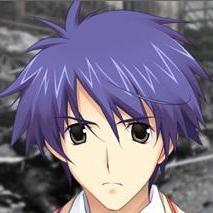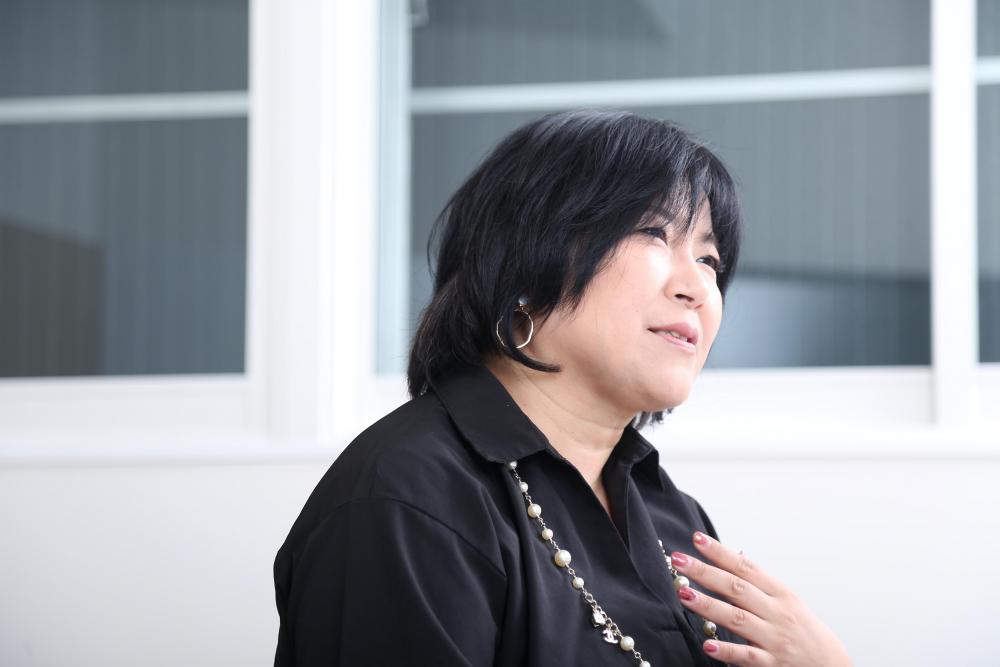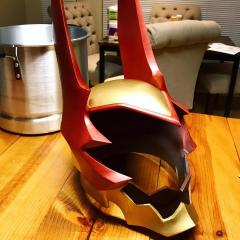We have fully translated the Hatalabo interview with composer Yoko Shimomura. We previously covered a brief section of this interview that focused on her experience with Kingdom Hearts.
This interview offers an incredible amount of insight into Shimomura's mentality when composing music, and how her attitude towards it has changed since her novice years.
QuoteInterviewer: When you were a child, I imagine you had a passion for classical music. So what made you like game music?
Shimomura: Well, when I was little...we didn't have the NES. I'm from that era where "video-games" were arcade machines you played in places across the neighborhood, so I didn’t have much contact with game music. However, during my college years, I played Super Mario Bros. for the first time and the music just enticed me. This was the first time I realized there were people who made such music possible.
Interviewer: So then, you thought of becoming one of those yourself, I imagine?
Shimomura: Ever since junior high, I had this...passion for music. However, I had no idea on what I wanted to do in the music field. Such a vague feeling made me want to work in the music field, though *where* in the music field, that was a complete blank for me.
Interviewer: So you didn't even think you'd be going into the game field huh? Moving on...when you composed music for Capcom, how did that feel?
Shimomura: Funny you'd say that, because I had no idea Capcom even existed. I only heard about it during my junior years of college. During that time, Capcom and Hudson had an event in my college where they handed out flyers for a new game called "Mankai Village" [Translator's note: This game came to the west as Ghosts and Goblins. It was originally an arcade release in 1985, and was later ported to portable consoles such as the GBA, PSP, etc.]. I then found out that there exists more than just one company of games--there's tens, perhaps hundreds of companies. I was from a family of piano players, so I had no idea I could even compose game music with just the piano.
Interviewer: If that's the case, then why did you apply for such a job [at Capcom]?
Shimomura: You see, there was this flyer announcing job positions at Capcom and it said they were hiring for the "sound creation" department. I remember that the Japanese on the poster grabbed my attention because of the horizontal characters (laughs). [TL Note: In Japan, it is considered professional if you write posters in horizontal Japanese.] I remember saying to myself: "Hey, this is the job of the people who make the music on Mario! I got to try it out!"
That said...I was about to become a piano teacher. To this day I wonder: What if they refused my application or what if the offer never showed up? (laughs)
Interviewer: When you got the job at Capcom, did you feel a certain...pressure when creating music there?
Shimomura: It was painful in the first half of the year. Every day, I just thought about quitting that job. At the time, I was still living with my parents, so every day I would bottle the feeling that "I might quit tomorrow". I wanted to do music, so I was like: "Why am I not getting any results...?!"
Interviewer: But you never gave up.
Shimomura: I knew I wouldn’t rest until I released one single work under Nintendo. I remember that because of my efforts, I was able to rewrite the game’s disk system.
Interviewer: Even though the first few months were painful, you already were a force to be reckoned with, I imagine.
Shimomura: You see, my "senpai" [senior] worked on the Mega Man songs and she had to working a full year on it because, as you know, writing to a NES cassette was...quite complicated. And yes. I am talking about Matsumae Manami [Megaman's main song composer]. She was working on that while also juggling college work. She was amazing.
Interviewer: The Mega Man soundtrack, huh...? Man, I remember that song is nicknamed as the "Divine Comedy of Music!" [The Divine Comedy is a long Italian narrative poem by Dante Alighieri. It is widely considered to be one of the greatest works of world literature.]
Shimomura: That's right! Even today, Matsumae Manami works on gaming music. Whenever I felt depressed, I would just pop in one of the songs created by my seniors, as I could feel the skill gap between us, and that motivated me to try and close that gap.
Interviewer: So when did everything start to look good for you?
Shimomura: As I said, I could feel the difference of skill, but I was glad with what I had. I was always doing my very best, after all. My health...wasn't the best. I was always feverish and yet I couldn't stop! ...Well, I guess that applies even nowadays (laughs). The phrase "take it easy" does not exist in my dictionary, and I think I'll never put it in my dictionary for as long as I live.
Interviewer: The start of your career was composing a song for Street Fighter II wasn’t it?
Shimomura: Yes, it was about three years into my time as a company employee. I got the job completely by chance. During those days after I finished one job I’d work straight into the next one. It was always, “from A onto B and if there is no C what will I choose?” and I kept working like that.
In this case my boss had worked on the music for Street Fighter , and thought that this would be a hit, so I wanted to try. It turns out the music was a hit.
Interviewer: It must be a huge bam! being a social phenomenon. I remember when I was an elementary school student, and there were tons of people wanting to play the popular games at the game center.
Shimomura: Back then, I couldn't even believe what was happening. I was like: "I just composed the song for Street Fighter II!" I didn't get a promotion, a salary raise, nor a team change! (laughs) But then, I went to the game center, and that made me realise why. Street Fighter II was a HUGE success.
Interviewer: With Street Fighter II being a hit, did you finally feel confident?
Shimomura: Well, even now I do not know. After Street Fighter II, I was able to work on hits, and although I thankfully can do concerts now, I don’t have self-confidence. Today still, when releasing a demo sound source, I think ”What if it gets lost…?”, and my heart is about to break. No matter how satisfied you are, you are always worried. How can I be confident?
Interviewer: The people's expectations will continue to grow and grow, right?
Shimomura: During the era which I'll call the "Capcom Era", it wasn't the case. However, many and many new composers joined the team. So I guess you could say I was tasked with watching over them.
Interviewer: The reason behind your transfer to Square Enix was because they needed a new composer?
Shimomura: Yes, and there's more to it. I wanted to write songs for an RPG. After admiring my superior's composition for Dragon Quest, I decided I wanted to tackle it myself.
But at the time, Capcom focused solely on action games, and I was moving from console games to arcade games, and thus, an RPG arcade game was unlikely. So I entered Square hoping that I could create the RPG tune I desired.
Interviewer: As you previously mentioned, your musical roots are in mainly the classical genre, so making an RPG tune wasn't too hard, I suppose?
Shimomura: I thought that at first, but the moment I put my feet at Square...I hit a music block. I dunno if it was because I was under pressure, or nervous of the people whispering like: "That's Shimomura, the one who made the amazing Street Fighter II music!" I was feeling so out of it that I eventually was even called by the boss of Square to sort things out.
Interviewer: How did you get off your musical block?
Shimomura: There wasn't a trigger per se. Just one fateful day, I had an amazing inspiration and I just started writing it right away! As I was writing it, I was reminded of the joys of music composing.
This took me 3 to 4 months. It wasn't your common music block where a simple change of pace resolved it. No. I got the song out...but as always, I got an earful saying that I got the song out late.
Interviewer: Since you’ve become a freelancer you’ve worked on projects outside of the gaming area, such as anime, theatre, concerts, and other various projects. You’ve kept challenging yourself.
Shimomura: Thank you! I’m a fairly passive individual, but the world has been becoming smaller with things like anime and theater changing. They are changing and I’ve been studying more to change with it.
Interviewer: For those who choose to leave the company and go freelance, such as yourself, what do you think is most important?
Shimomura: Hmm…I’d say your voice [literally “talking”] will be your most important thing.
Interviewer: Your... voice?
Shimomura: When I worked under a company I was able to have enjoyable communications. But after you leave the company it becomes hard to converse in a casual way, right?
It was something I remembered, “isn’t it my theme to face this fear, [this struggle with speaking]?” And I took it on. In my job I decide my role and the reason for it, and the result of that has led me down this way of thinking. But, I think in my situation I have simply been lucky.
Interviewer: There have been people who have been saved by games and game music [refers to people who got over cases of depression or suicidal thoughts thanks to video games.]
Shimomura: I often get letters from people overseas thanking me for my work. They talk about how it helped them when they couldn’t go to school or comforted them while they were in the hospital, and such, and hearing that makes me think I didn’t waste my life doing this, since it’s allowed me to help people. It also gives me an energy boost. If I can have my feelings reach just one person through my work, then it’s worth it to keep going.
Interviewer: You’ve had quite the amazing career. Lastly, what is your current goal going forward?
Shimomura: In reality I didn’t carry out my goals based off my work, I completed them for the sake of my kid. It’s always like, “I want to try this” or “I want to try that,” so it’s been a continuation in this vain of me reacting. I mentioned this earlier, but I’m a pretty passive person. I would like to continue just doing my best and continuing this cycle I’ve created in pushing forward in my work. I would like to create music for figure skaters. In fact, some have danced to game music. So before I die I’d like to try creating an original song for a free skate routine.
Interviewer: How can people work as brightly and positively like you?
Shimomura: What I try to remember is not to repress your emotions. If you need to cry, cry outrageously, laugh, get angry. Especially since music is an expression of emotion, the more expressive you are emotionally the more expressive the music becomes. That’s why in your work, not just music, you should follow your heart and your work will reflect that. The other thing I’d say is…do not to compare yourself to others. When I was a newcomer I was discouraged when viewing the amazing people around me, but it is better to keep looking up. You should focus on continuing to rewrite yourself without constantly worrying about the people around you. Try new things! It’s your life!
Huge thanks to our team's Ryuji, Mio, and Nihonscribe for their incredible work on these translations!





Recommended Comments
There are no comments to display.
Join the conversation
You can post now and register later. If you have an account, sign in now to post with your account.